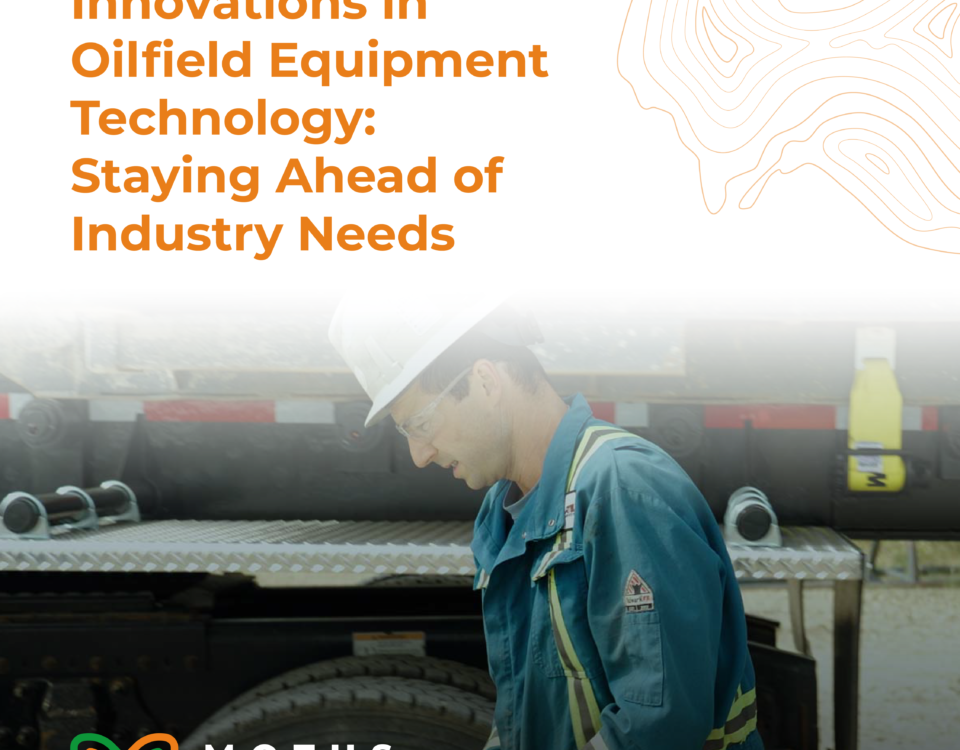
Operational Efficiency: Proactive Strategies for Success
September 26, 2024
Innovations in Oilfield Equipment Technology: Staying Ahead of Industry Needs
January 27, 2025Navigating Regulatory Compliance in Oilfield Waste Management: Tips for Success
In the oilfield industry, effective waste management is critical to maintaining safe, sustainable, and compliant operations. Navigating the regulatory landscape requires careful attention to waste classification, handling, transportation, and disposal. At Motus Solutions, we understand the challenges companies face in meeting these regulations and offer practical insights for successfully navigating compliance in oilfield waste management.
Key Areas of Regulatory Compliance in Oilfield Waste Management
Ensuring compliance in waste management involves addressing several core regulatory areas, each of which demands close attention to detail and adherence to standards. Here are some key compliance areas that energy companies must focus on:
- Waste Classification: Properly identifying and categorizing waste is essential for meeting regulatory standards. Inaccurate classification can lead to fines and improper disposal. Each type of waste, whether hazardous or non-hazardous, must be classified according to federal, provincial, and local regulations to ensure appropriate handling and disposal.
- Waste Handling: Regulations often specify how different types of waste must be handled to minimize environmental and safety risks. For example, hazardous waste requires specialized containment and may need specific labeling. Proper handling procedures help prevent spills, leaks, and contamination during the collection and storage phases.
- Transportation: Transporting oilfield waste involves a strict set of requirements, from securing the waste to maintaining accurate documentation. Compliance with transportation regulations, such as route planning and vehicle standards, reduces the risk of accidents and ensures waste arrives safely at its designated disposal site.
- Disposal: Final disposal of oilfield waste is heavily regulated to protect land, water, and air resources. Facilities that handle disposal must be properly licensed, and disposal methods must adhere to environmental guidelines to prevent contamination and minimize the waste’s impact on the surrounding ecosystem.
Common Compliance Challenges and Pitfalls
Navigating the compliance landscape comes with its share of challenges. Here are a few common issues energy companies face in maintaining regulatory compliance in waste management:
- Complexity of Regulations: Regulations vary by jurisdiction, making it challenging to stay up-to-date on the specific requirements for each location. As a result, companies operating across multiple regions must continually monitor and adapt to local compliance standards.
- Inconsistent Documentation: Accurate record-keeping is essential for demonstrating compliance, but companies often struggle to maintain consistent documentation across all stages of waste management. Missing or inaccurate records can result in fines or increased scrutiny during audits.
- Handling Hazardous Materials: Hazardous waste handling requires specialized training, equipment, and facilities. Failing to comply with these stringent requirements can result in serious environmental and safety violations.
- Limited Resources for Compliance: Smaller companies may lack the resources to dedicate full-time staff to compliance monitoring and management. This can increase the risk of non-compliance, particularly as regulations evolve.
Tips for Addressing Compliance Challenges: Motus Solutions’ Perspective
At Motus Solutions, we believe that compliance in waste management is achievable through proactive planning, consistent training, and leveraging reliable partnerships. Here are a few strategies that have proven effective:
- Stay Informed on Changing Regulations: Keeping up with the latest regulations is essential. Working with compliance experts, joining industry associations, and subscribing to regulatory updates can help ensure that your team is aware of changes and prepared to adjust practices accordingly.
- Implement a Robust Documentation System: Effective record-keeping is the backbone of compliance. Establishing a centralized, digital documentation system can simplify tracking and improve accuracy. By ensuring all records, from waste classification to transportation logs, are consistently updated and accessible, companies can more easily demonstrate compliance during audits.
- Invest in Employee Training: Training employees on the latest compliance standards is crucial, especially when handling hazardous materials. At Motus Solutions, we prioritize regular training sessions to keep our team up-to-date on safe handling procedures, regulatory changes, and best practices. This proactive approach helps prevent costly mistakes and ensures that all team members are equipped to manage waste safely and effectively.
- Partner with Reputable Waste Management Facilities: Working with licensed, reputable facilities ensures that waste is disposed of according to regulatory standards. Vetting disposal partners for their compliance records and operational practices can mitigate risks and provide peace of mind that waste is managed responsibly from start to finish.
- Leverage Data and Analytics for Compliance Monitoring: Using data analytics to monitor compliance-related metrics, such as waste classification accuracy and handling times, allows companies to spot potential issues early. By tracking patterns, Motus Solutions can make proactive adjustments and ensure that every stage of waste management adheres to regulatory requirements.
Navigating the complexities of regulatory compliance in oilfield waste management can be challenging, but with the right strategies and tools, companies can effectively address these demands. At Motus Solutions, we’re committed to helping our clients maintain high standards of safety, sustainability, and compliance. By staying informed, investing in training, and adopting proactive waste management practices, companies can successfully meet regulatory requirements while minimizing environmental impact.
If you’re interested in learning more about our approach to regulatory compliance in oilfield waste management, contact our team or visit our website today.




